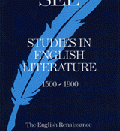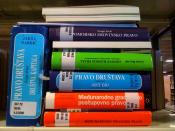Myths occur as popular beliefs in varying aspects of societies today; these conceivable notions create a rollercoaster of emotions for the beholder. Whether a myth is instilled in someone by society or by themselves, the reality can be devastating, and oftentimes can take away from lifeÃÂs enjoyment. Jamaica Kincaid explains in her essay ÃÂOn Seeing England for the First TimeÃÂ the same concept that V. S. Naipaul demonstrates in ÃÂJasmineÃÂ: There is a vast difference between myth and reality, after buying into such a powerful notion the truth can be disheartening. KincaidÃÂs myth is created based on societal teachings, where as Naipaul creates his own myth based on English literature; after reality reveals itself both authors express disappointment in addition Kincaid is angered and Naipaul is embarrassed.
Through societal influences Kincaid grows to view England as a mythical place. At school age the children are shown how wonderful England and English people are: ÃÂThis is England...the
place you will go when you die but only if you have been goodÃÂ (209). Kincaid grew up in Antigua which is one of the British Isles; therefore the school systems would enforce teaching British history. Through the way in which the school system, an aspect of society, taught the students about England it would appear that ÃÂEngland was a special jewel...and only special people got to wear itÃÂ (209). Children are generally naive and ignorant; due to Kincaid being exposed to these ideas as a child and to the absence of global education in her society there were no ideas to oppose this myth. The myth suggested that England is a pristine and ideal Country; the residents of Antigua looked up to a Country of such merit. Although it is common knowledge that one cannot grow up to be of a different nationality, English was something the people of Antigua would aspire to be. Societal pressure had Kincaid and the other children dreaming of England, ÃÂit was the source from which [they] got [their] sense of reality, [their] sense of what was meaningful...and much about [their] own livesÃÂ (209). Their sense of reality was a work of fiction, a myth, passed down through generations caused by society failing to see their native culture as reality.
While KincaidÃÂs myth is brought upon by the ideals of society, Naipaul creates his own myth based on English literature. Naipaul created his myth because he was never fully able to understand or empathize with the characters in English literature. His inability to comprehend certain aspects of the text resulted in his decision to adapt foreign things to more familiar ones native to Trinidad. Naipaul would replace anything foreign with something familiar not only as means of better understanding the text, but also because he feels that ÃÂif [he has] never seen it... [how] could [it] have any meaning to [him]ÃÂ (306). While this opinion may hold some truth it is also ignorant. Literature provides insight into cultures and societies, it works to broaden ones view of the world; sometimes engaging the imagination is the goal the author is trying to reach. By not taking advantage of the educational value the literature holds simply because Naipaul would ÃÂnever read to find out about foreign CountriesÃÂ (307) shows great ignorance on his behalf. Naipaul believes that ÃÂall literature [should be confined] to the Countries of their originÃÂ (306); he thinks that literature can only be understood by those to whom it is native. His view of foreign literature is that of someone un-educated: ÃÂliterature [is] like an alien mythologyÃÂ (306). Naipaul creates a mythical version of Trinidad by adapting certain aspects of the literature he read to his native soil.
Just as NaipaulÃÂs global ignorance causes him to be discontent with himself, KincaidÃÂs naivety causes her great disappointment. Believing what she was told about the supposed pristine England she was severely let down and angered when she saw England for herself. Kincaid believes that the space between reality of things and the fantasy of things only grows over time. ÃÂThe idea of something and its reality are often two completely different things...so when they meet and find that they are not compatible, the weaker of the two, idea or reality, diesÃÂ (212). KincaidÃÂs first real viewing of England closed the gap between myth and reality; the space ÃÂhad become filled with hatredÃÂ (212). Her myth of England dies the moment she sees it. Reality is revealed through her trip to England and due to the vastness of her myth she wishes that ÃÂall [her] views of England... [would] jump and die and disappear foreverÃÂ (213). She became increasingly angry with the Country and its people, as this was not what she had been envisioning her whole life. Kincaid compares England to a jail sentence and being dead-like; it became clear to her that her opinions that may be considered prejudices were not, they were justifiably her own opinions. This caused her greater disappointment because she would not be supported by her own people of Antigua; they were still naive and saw England as a jewel. She found great frustration in the disappointment of reality; she feared that people would not believe her until they saw England for themselves.
Similar to KincaidÃÂs frustration with reality Naipaul struggles when reality is revealed to him. When the old lady reveals the name of the aromatic flower, jasmine, Naipaul could not identify the flower with the fragrant aroma; all along he had been changing the names of so many things that he read about in English literature. The Jasmine that he cannot identify with could be a symbol for something greater that he did not have to miss out on in life. Naipaul read English literature in order to create a fantasy in his reality this served no educational purpose, as he would ÃÂnever read to find out about foreign CountriesÃÂ (307). Although the appearance of NaipaulÃÂs extensive reading would give one the illusion of knowledge, it masks his lack of understanding; reading great English literature caused Naipaul to become more ignorant. His adaptations to the English literature caused him great embarrassment later in life when he came to write about them: ÃÂIt was embarrassing to be reminded...of the absurdity of my adaptations; it was equally embarrassing to write of what I sawÃÂ (307). Naipaul is under the impression that ÃÂuntil they have been written about, societies appear to be without shape and embarrassingÃÂ (307). He was unable to write about the reality of Trinidad without feeling embarrassed, or that his writing was not worthy until he was much older.
Kincaid and Naipaul have a great deal of similarities; they both have a vast gap between their sense of reality and their myth. In discovering their realities the idea that was once a myth dies. Their reality overpowers their myth. As their myths grow stronger so does their sense of disappointment, waiting to surface as soon as reality is discovered. This is true for every aspect of life, the longer the unidentified remain in said state, the harder it will be in the future to identify them correctly. Ultimately investing into myths will cause disappointment, among other unpleasant emotions, when reality is revealed.
bibliography:Jamaica Kincaid ÃÂOn Seeing England for the First TimeÃÂV. S. Naipaul "Jasmine"





